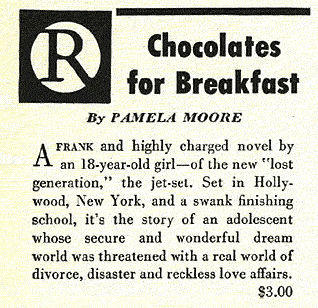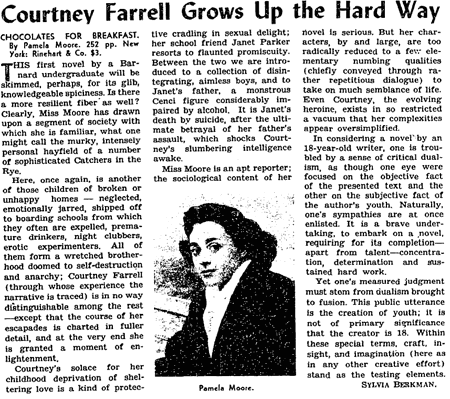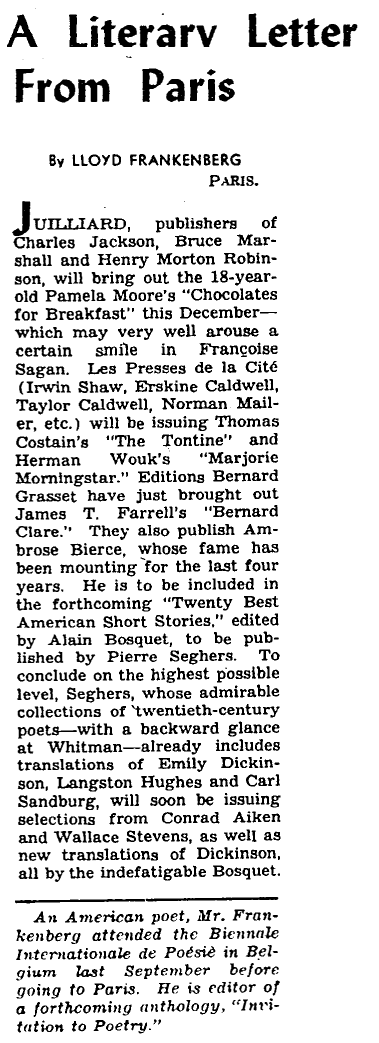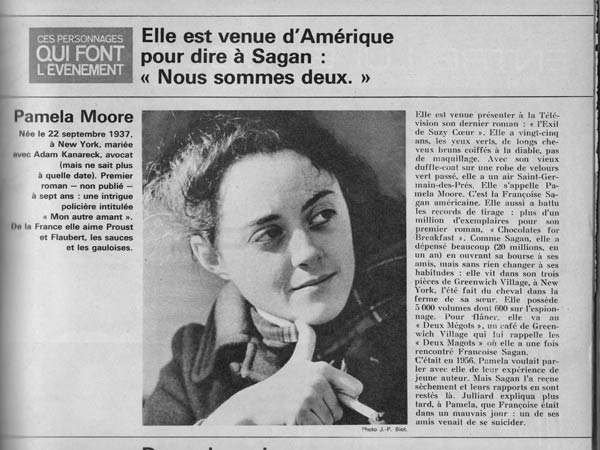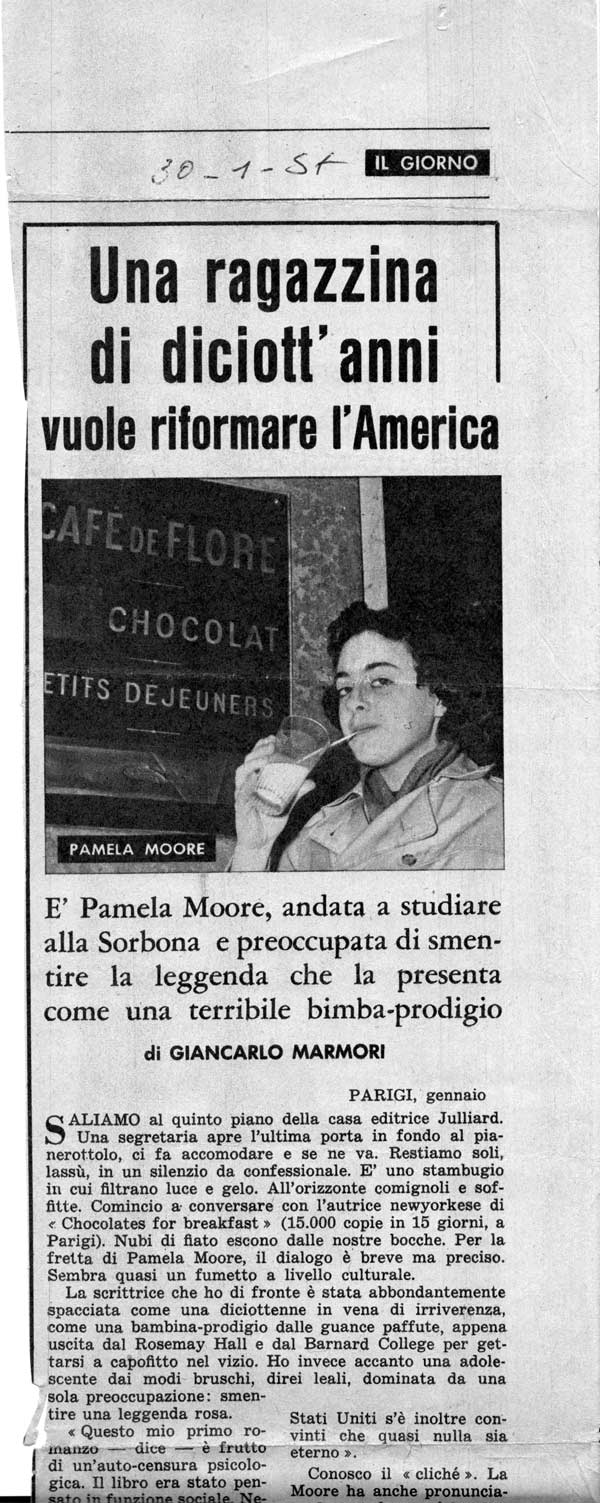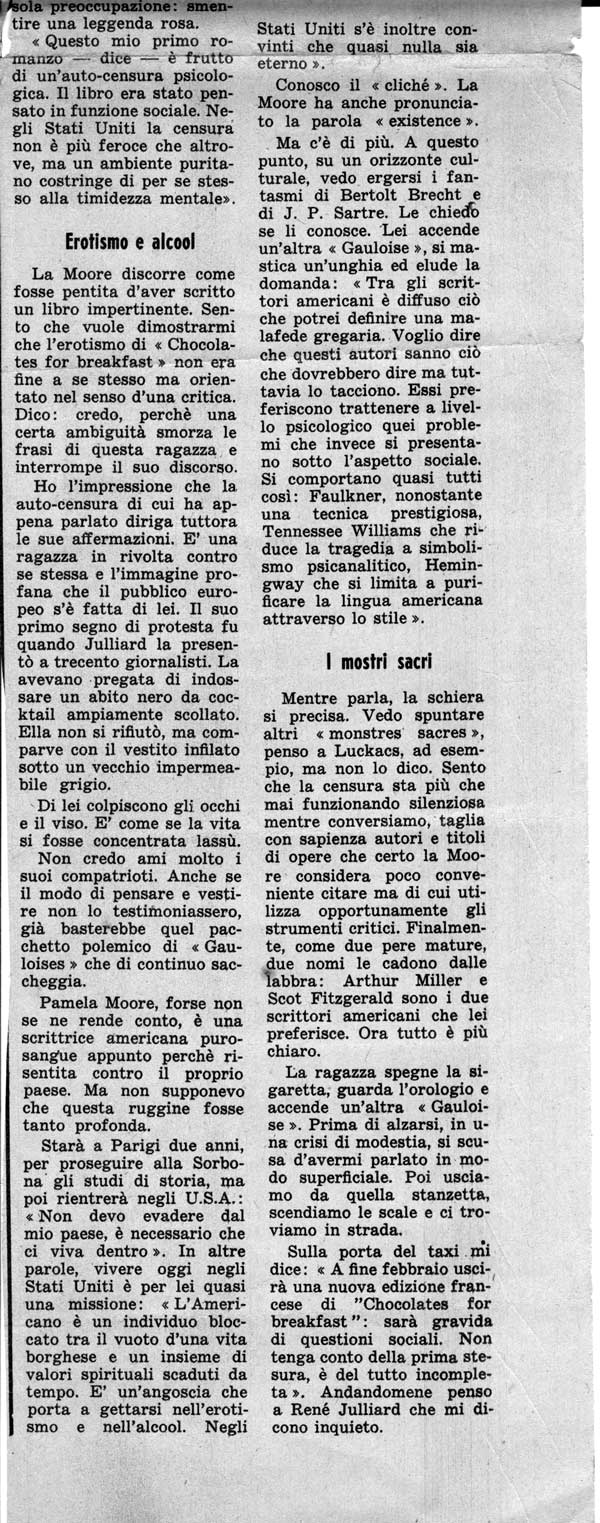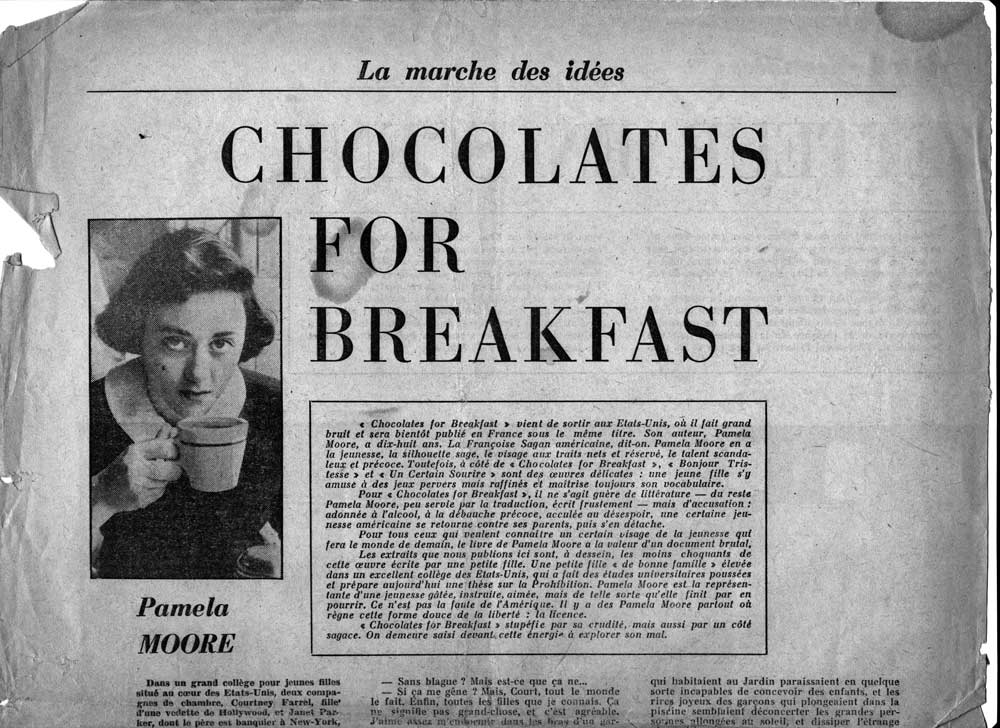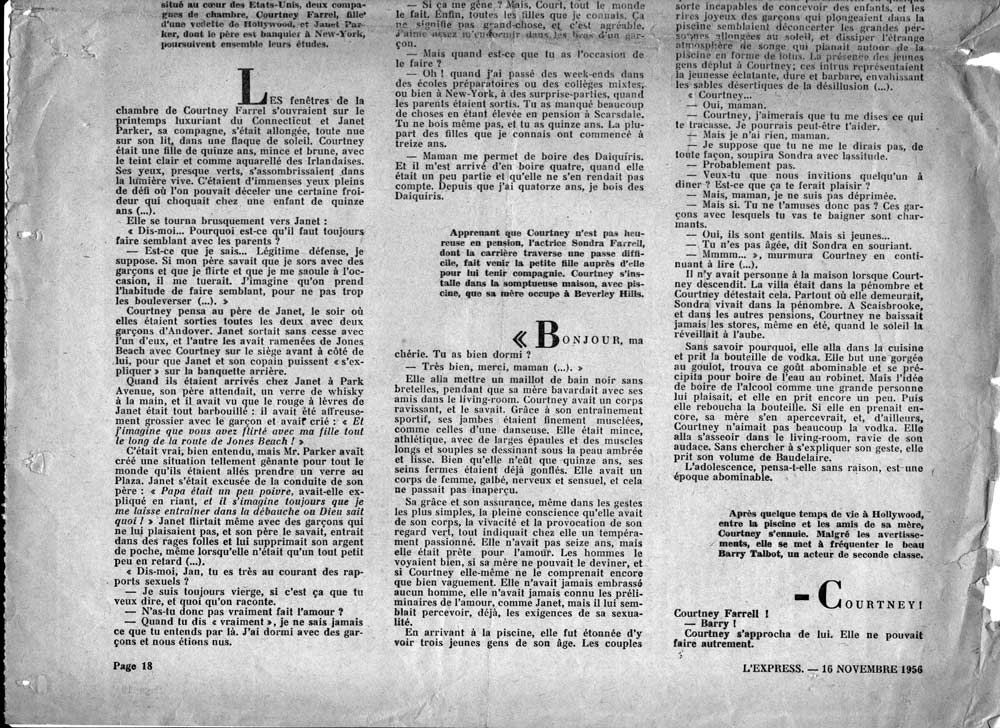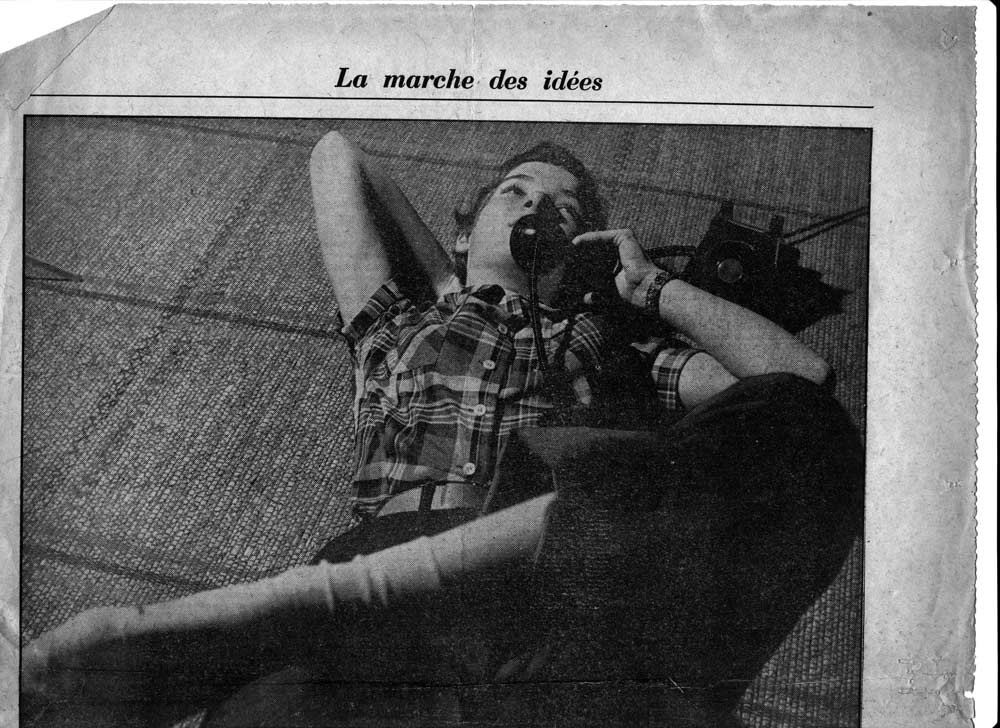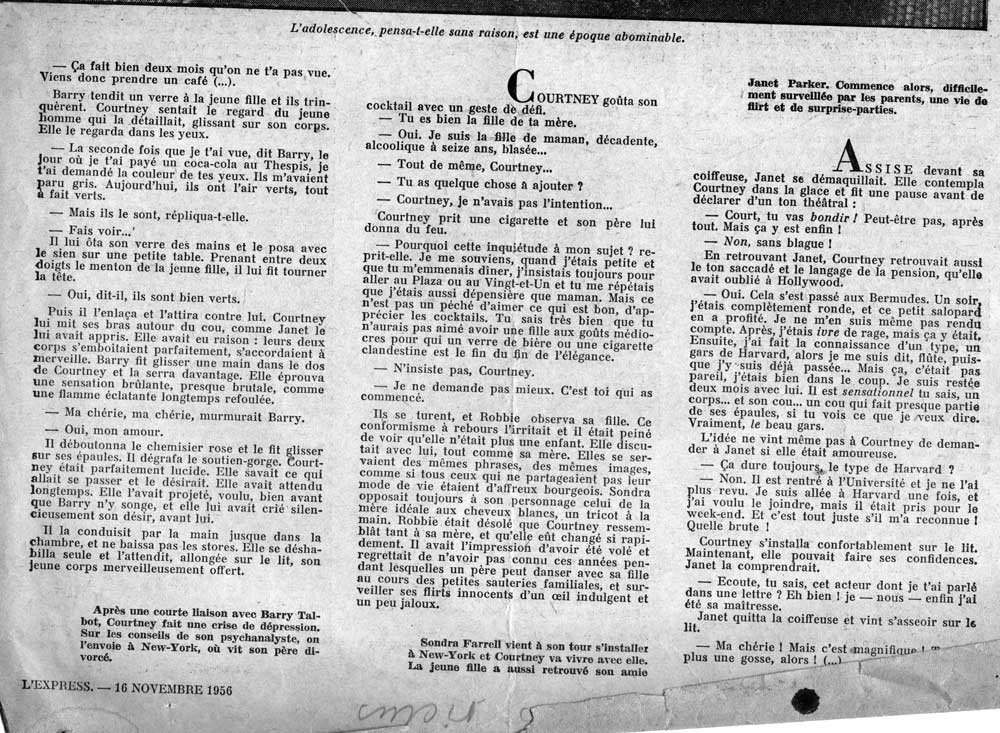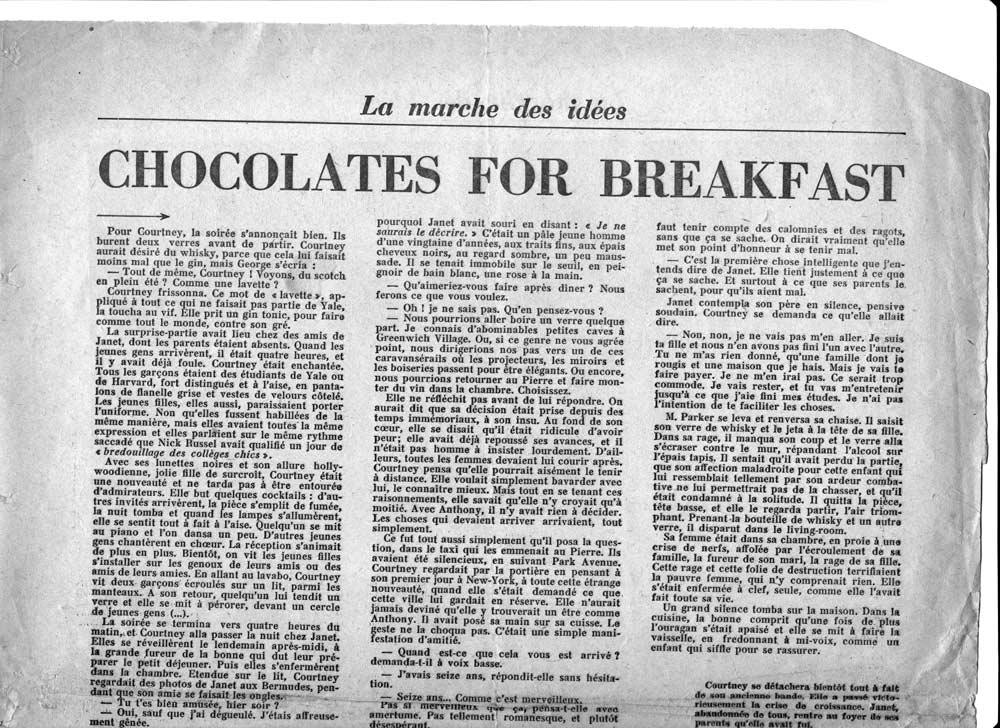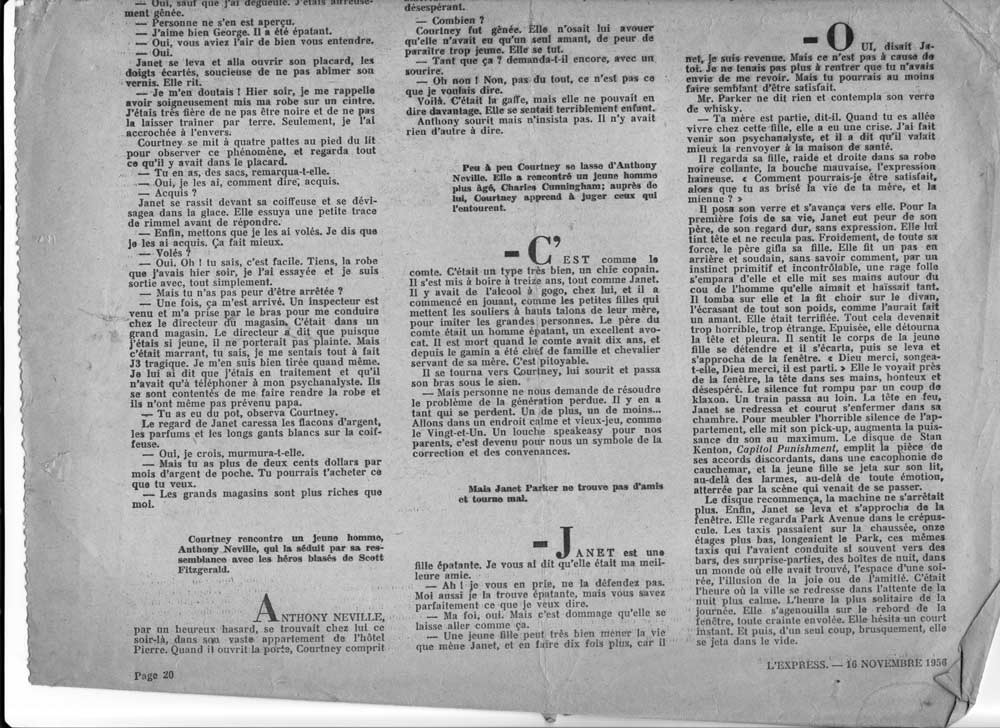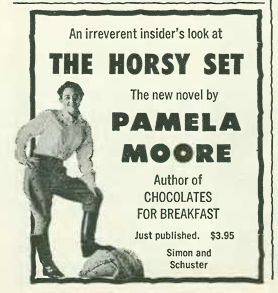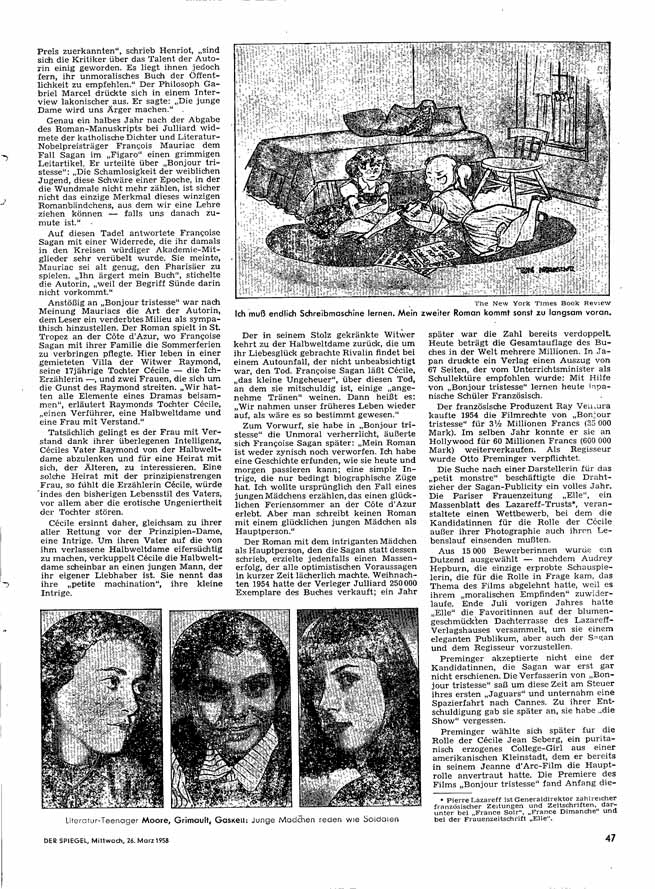Robert Clurman in the New York Times Book Review, August 1956
Ever since Mlle. Sagan’s first novel demonstrated that a precocious young girl’s views of life, love and the adult world had an irresistible appeal… the search has been on… for an “American Sagan”… [But this] is probably a misnomer for Miss Moore… In fact, some sections of her novel make Mlle Sagan look a trifle prudish. Which brings to mind the uncomfortable thought that not very long ago, it would have been regarded as shocking to find girls in their teens reading the kind of books they’re now writing.
Newsweek, September 17, 1956
She may well be part of a trend among publishers to start a new cycle of youth problem novels, as told by the young – a kind of literary parallel to the more overt delinquencies of the switchblade hoodlums.
William Hogan in The San Francisco Chronicle, Oct. 10, 1956
It would appear that Miss Moore had hoped…to become the female J.D. Salinger.
Kirkus Reviews, Sept. 17, 1956
That derelict world of kids on the skids, whose bitter precocity leaves little to grow up to — this has been a susceptible subject, and once again it has a disturbing air of authenticity.
Paul Hühnerfeld in Die Zeit Magazine June 13, 1957
. . . what really is interesting here is not the book itself, but the great fuss being made about it . . . isn’t this just part of our love for the immature, the childish? We are fascinated, having long been at our wits’ end, taking note of every expression of human life that promises us a ‘spiritual ‘– please forgive the use of the word in this context- and somehow ‘juvenile delinquent’ power. We lack spiritual strength, we have failed, we have become weak — let us now try our lot with the juvenile delinquents and the beatniks . . .
zeit.de/1957/24/cocktail-traurigkeit
“Guten Tag, Langeweile!” Der Spiegel, March 26, 1958
The 18 year old college student Pamela Moore has written a confessional novel — German title “Cocktails for Breakfast” — of the genre where decadent college girls are awash in alcohol and seek out love adventures at an early age.. When the author came to Paris on her first European tour, the French reporter asked her the stereotypical question of whether she shared her heroine’s morals, which the American denied, and the French took her at her word.
“Sex in Modern Fiction,” Cosmopolitan Magazine, by Edmund Fuller, August, 1958
The writers whom I decry know nothing of sex in the context of actual love… Sex is portrayed by them as a stupefying pleasure mechanism for which heterosexual or homosexual relationships can serve equally well.
“Yesterday’s Bright Young Men”, Jaguar Magazine, by Milburn Smith, December, 1964
I made some remark which attempted to minimize her book and classify it among the ridiculous efforts of silly female writers who turned untrue confessions into novels. She parried my thrust and said that her parents, an editor and a novelist, disappointed she was not a boy, sent out announcements of her birth which read: we wanted an editor, but got a novelist.
Special thanks to withhiddennoise for finding and digitizing some of the clippings below.
